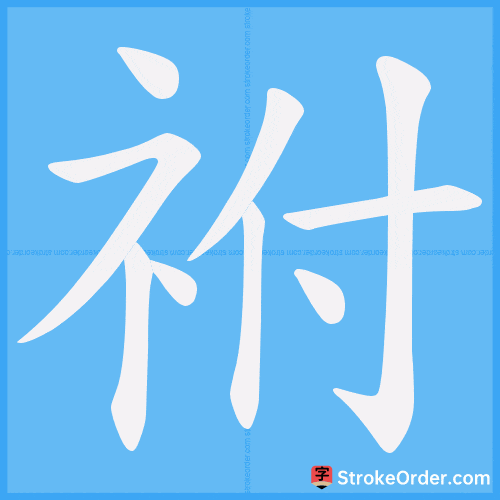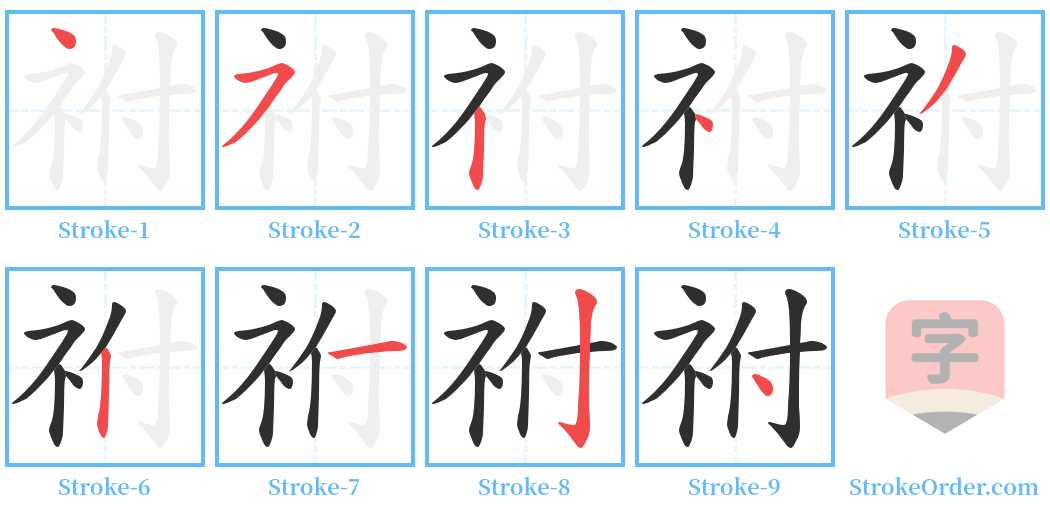祔 Stroke Order
Animated Stroke Order of 祔

Stroke Order Diagrams for 祔

Information of 祔
Pinyin
fù
Radical
礻
Strokes
9 strokes
Usage
★★
Definition
祔 [fù]
1. To offer the wooden tablet of a new deceased person in the ancestral temple and to worship it alongside the wooden tablets of ancestors.
- Example: “When someone dies, they mourn for three days, and the next day, they will conduct a祔 (fù) ceremony.”
2. Joint burial.
- Example: “Duke Zhou was buried together with others (合葬).”
Definition in context:
1.祭名: Refers to ancient sacrifices to ancestors. Originally, it indicated that ancient emperors would place the divine title of the deceased next to the ancestors’ in the ancestral temple and worship them together.
2.合葬: To be buried in the same tomb. For example, 祔穴 (fùxuè - the tomb for joint burial), 祔葬 (fùzàng - joint burial), 祔窆 (fùbiàn - joint burial), 祔次 (fùcì - order of joint burial).
引: 《仪礼·既夕礼》: "When someone dies, they mourn for three days; the next day, they conduct a祔 ceremony."
例:
- 祔主 (fùzhǔ - placing the divine title of the deceased alongside ancestors’ for offerings)
- 祔祀 (fùsì - during the ancestral temple ceremonies, placing the deceased next to the ancestors)
- 祔庙 (fùmiào - conducting offerings for the deceased at the temple of ancestors)
合葬 (bury in the same tomb).